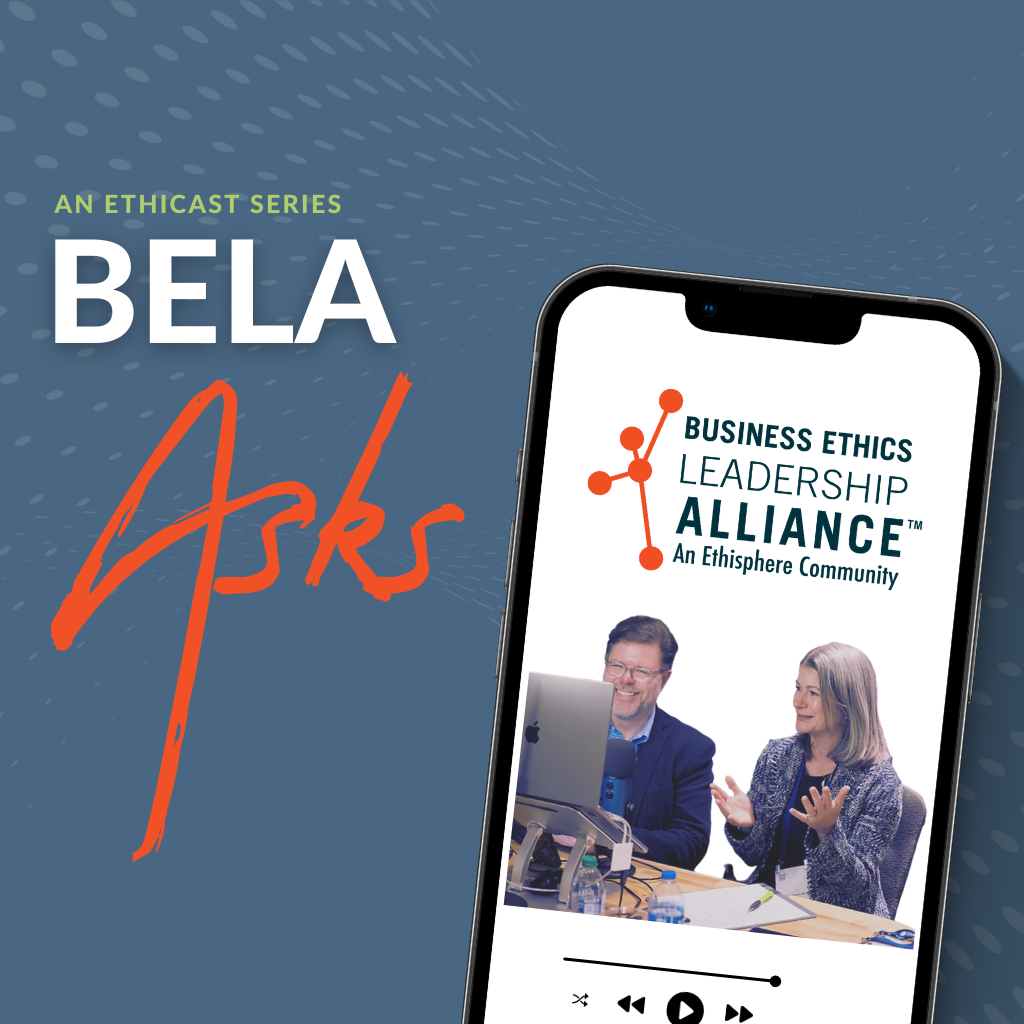[00:00:00] Hi everyone. Today we'll take a look at the implications of what might be the unlikeliest ethics scandal of the year and what it teaches us about ethics in general. I'm your host, Bill Coffin, and this is the Ethicast.
[00:00:23] It has been a busy time for ethics and integrity news in recent months. The massive Department of Justice resolutions around Boeing and TD bank and the update to the DOJ's evaluation of corporate compliance programs notwithstanding, there has just been an awful lot of unhappy EC news. Executives going to jail, companies receiving massive fines and penalties, CEOs being dismissed or stepping down, and more class action lawsuits than one would ever care to count. But one story above all has captured my attention and refuses to let go, partly because it so perfectly exemplifies Sayers Law, which is of course in any dispute. The intensity of feeling is inversely proportional to the value of the issues at stake. With that set up, I give to you what is to me the ethics scandal of the year. The 2024 World Conquerors Championship. Now, Conquerors, for those of you who don't live in the British Isles, is a traditional game where kids run a string through a horse chestnut and then take turns swinging them against each other's chestnuts or Conquers. The first conqueror that breaks apart loses. Now, as with any niche interest, there's now a world championship tournament for this. And this year the big news should have been that for the first time, an American, Kelsey Bonsch of Indianapolis, won the women's championship. But instead the headlines went to 82 year old David King, Conquer Jenkins, who finally won the men's title after 47 years of competing. Upon victory, however, Jenkins was accused of cheating and was in fact found to have a steel conquer on his person during the competition. Is nothing sacred? Well, as news of this swiftly went global, the World Conquers championship, or the WCC convened a 14 person task force to review the allegations and even went so far as to use video assisted refereeing. That's var to you soccer fans. To get to the bottom of things, had Jenkins actually used his steel conqueror or did he merely have it on him as a gag as he claimed? Meanwhile, people asked, who cheats at conquers? Moreover, who cares who cheats at conquers? Well, ultimately the WCC exonerated Jenkins. Even though Jenkins had taken part in preparing the tournament Conquers, from which contestants drew randomly, and even though he clearly had an illegal conquer on him in the end, video replay showed that on the round in which he was alleged to have cheated, Jenkins never pulled the steel conquer from his pocket the WCC publicly chalked off the cheating allegations to sour grapes by a defeated contestant who didn't take kindly to seeing his own conqueror vaporized so thoroughly. Now it goes without saying that Jenkins remains guilty of extremely bad judgment as well as a clear conflict of interest. Those who participate in Attorney shouldn't be handling the official game kit, and shading the one who raised their hand isn't great either. In a community presumably as small as the world conquer scene, publicly shaming someone who raises their hand is a form of retaliation.
[00:03:19] The truth is, most folks say they would call out misconduct if they saw it, but only half ever do because they're afraid nothing will come of it. Or more importantly, they will face payback. That's why there is such a big speak up gap in Fortune 1000 organizations and obscure sporting leagues alike.
[00:03:35] Here's hoping that the WCC will learn a few lessons from this for next year. Perhaps they could institute a proper conflicts of interest disclosure program so everyone's allegiances are in the proper place. And most importantly, perhaps they can communicate that it's not sour grapes to call out the appearance of serious ethical breaches. It's the right thing to do, and it shouldn't be so vilified that it takes courage to do it. After all, fair play isn't just the province of quirky sporty leagues and ephemeral news stories. It's the key for sustainable success. So to Sarah's Law, let me add Coffin's corollary. The value of ethics doesn't scale downward, it scales infinitely upward. Because ethics is everything.
[00:04:14] This editorial is from the upcoming fall issue of Ethisphere Magazine, which will feature a special focus on leadership and the Board and will share insights from leaders at Target, Hitachi, Major, Lindsay in Africa, Ey, Hush, Blackwell, Morrison, Forster, and more. We can't wait to share it with you. I'm Bill Coffin and this has been the Ethicast. For more episodes, please Visit the Ethisphere YouTube
[email protected] ethisphere and if this is your first time enjoying the show, please make sure to like and subscribe on YouTube, Apple Podcasts and Spotify. Thanks for joining us. And until next time, remember, strong ethics is good business.


